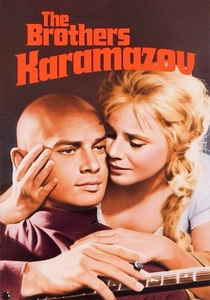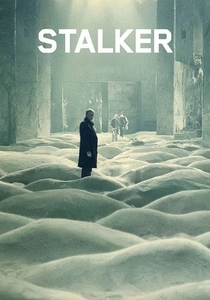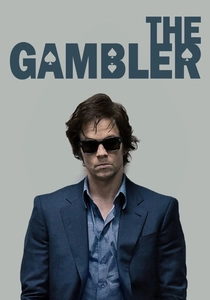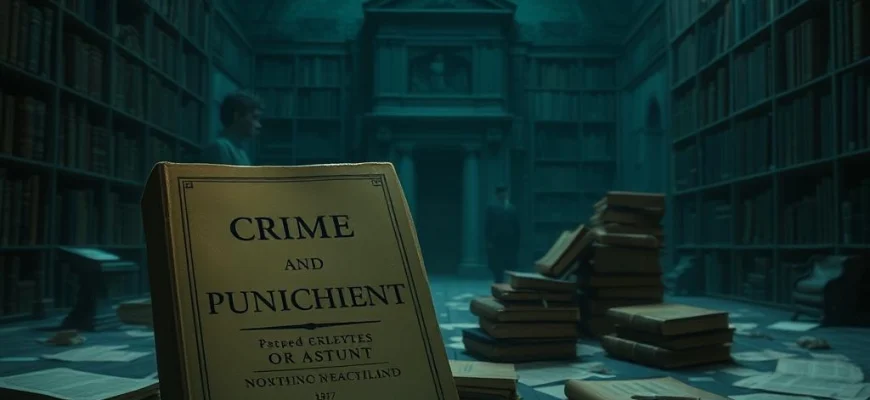If you were captivated by the psychological depth and moral dilemmas in 'Crime and Punishment (2019),' you'll love these 10 similar movies and shows. This article explores gripping narratives that delve into guilt, redemption, and the human psyche, perfect for fans of Dostoevsky's timeless themes.

The Seventh Seal (1957)
Description: A profound meditation on life, death, and the search for meaning, featuring a protagonist who wrestles with existential questions and moral responsibility.
Fact: The iconic chess game with Death was improvised during filming. The film's stark black-and-white cinematography has influenced countless filmmakers.
 Watch Now
Watch Now 
The Brothers Karamazov (1958)
Description: A deep psychological and philosophical exploration of morality, guilt, and redemption, mirroring the intense internal conflicts and moral dilemmas of its characters.
Fact: Based on Fyodor Dostoevsky's novel, the film was nominated for an Academy Award for Best Supporting Actor. It was one of the first major Hollywood adaptations of Russian literature.
 Watch Now
Watch Now 
Through a Glass Darkly (1961)
Description: Explores themes of mental illness, faith, and the fragility of human relationships, presenting a harrowing portrait of psychological disintegration.
Fact: The first film in Ingmar Bergman's 'Faith Trilogy,' it won the Academy Award for Best Foreign Language Film. It was shot on the remote island of Fårö, which became Bergman's home.
 Watch Now
Watch Now 
The Trial (1962)
Description: A surreal and nightmarish depiction of an individual grappling with an incomprehensible and oppressive system, reflecting themes of existential dread and moral ambiguity.
Fact: Adapted from Franz Kafka's novel, the film was Orson Welles' personal project and features his signature deep-focus cinematography. It was initially poorly received but later gained cult status.
 Watch Now
Watch Now 
Persona (1966)
Description: A psychological drama that blurs the lines between identity and reality, delving into themes of existential crisis and the duality of human nature.
Fact: The film's opening sequence is one of the most analyzed in cinema history. Bergman considered it his breakthrough work, despite its initially polarizing reception.
 Watch Now
Watch Now 
Solaris (1972)
Description: A sci-fi masterpiece that examines memory, guilt, and the nature of consciousness, presenting a haunting exploration of human emotions and moral dilemmas.
Fact: Based on Stanisław Lem's novel, the film diverges significantly from the source material to focus more on psychological and emotional themes. It was remade in 2002 by Steven Soderbergh.
 Watch Now
Watch Now 
The Tenant (1976)
Description: A psychological thriller that delves into paranoia, identity crisis, and the disintegration of the self under societal pressures, echoing themes of alienation and madness.
Fact: The film is part of Roman Polanski's 'Apartment Trilogy,' which explores themes of isolation in urban settings. It was shot in a real Parisian apartment building to enhance its claustrophobic atmosphere.
 Watch Now
Watch Now 
Stalker (1979)
Description: A philosophical journey into a mysterious zone where desires and fears manifest, reflecting on human nature, faith, and the search for meaning.
Fact: The film was shot twice because the original footage was ruined during development. Its slow pacing and meditative tone have made it a landmark of art cinema.
 Watch Now
Watch Now 
The Sacrifice (1986)
Description: A contemplative film about a man's desperate bargain to avert catastrophe, exploring themes of guilt, redemption, and the human condition.
Fact: Andrei Tarkovsky's final film, completed while he was terminally ill. The long, unbroken take of the burning house was achieved in a single shot, requiring meticulous planning.
 Watch Now
Watch Now 
The Gambler (2014)
Description: Examines themes of self-destruction, obsession, and the psychological toll of moral decay, much like the protagonist's descent into personal turmoil.
Fact: The film is a modern adaptation of Dostoevsky's novella, transposing the story to a contemporary university setting. It features a high-stakes gambling scene filmed in a real casino.
 Watch Now
Watch Now 








